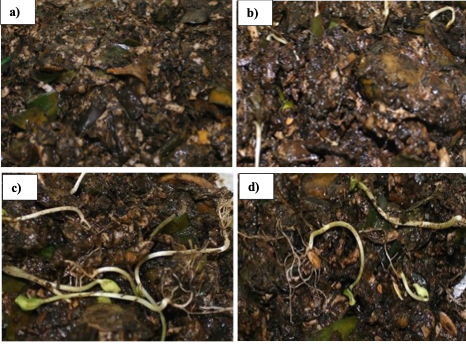 |
|
Compost has applications in agriculture and environmental restoration. Therefore, it is important to evaluate control parameters that help accelerate and improve the aerobic degradation and stabilization processes of organic waste. A mixture of pruning waste, organic fraction of municipal solid waste, paper, and sawdust was subjected to an aerobic degradation process using mature and stabilized compost from the Bordo Poniente composting plant in Mexico City at different aeration rates (0.064, 0.125, 0.201 and 0.392 L air min-1 kg-1 dry matter) in laboratory-scale bioreactors for 140 h. On-line monitoring of CO2 production and O2 consumption and their setting to mathematical models allowed to select the conditions to obtain a stable compost, as well as to analyze the concentration of trehalose, citric acid, glucose, xylose, erythritol, acetic acid, fructose, and the production of oxalic acid during the degradation process. Germination rates higher than 80% were obtained in the growth of Lactuca sativa seeds in organic waste extracts after aerobic degradation. A vkgm of 0.392 L air kg-1 min-1 DM is suggested as a strategy to obtain a compost free of phytotoxic compounds for the application of compost in agriculture or environmental restoration and a null maintenance coefficient.
Keywords: Organic fraction of municipal solid waste, aerobic degradation, compost, solid-state fermentation, phytotoxicity.
|
|
 |

